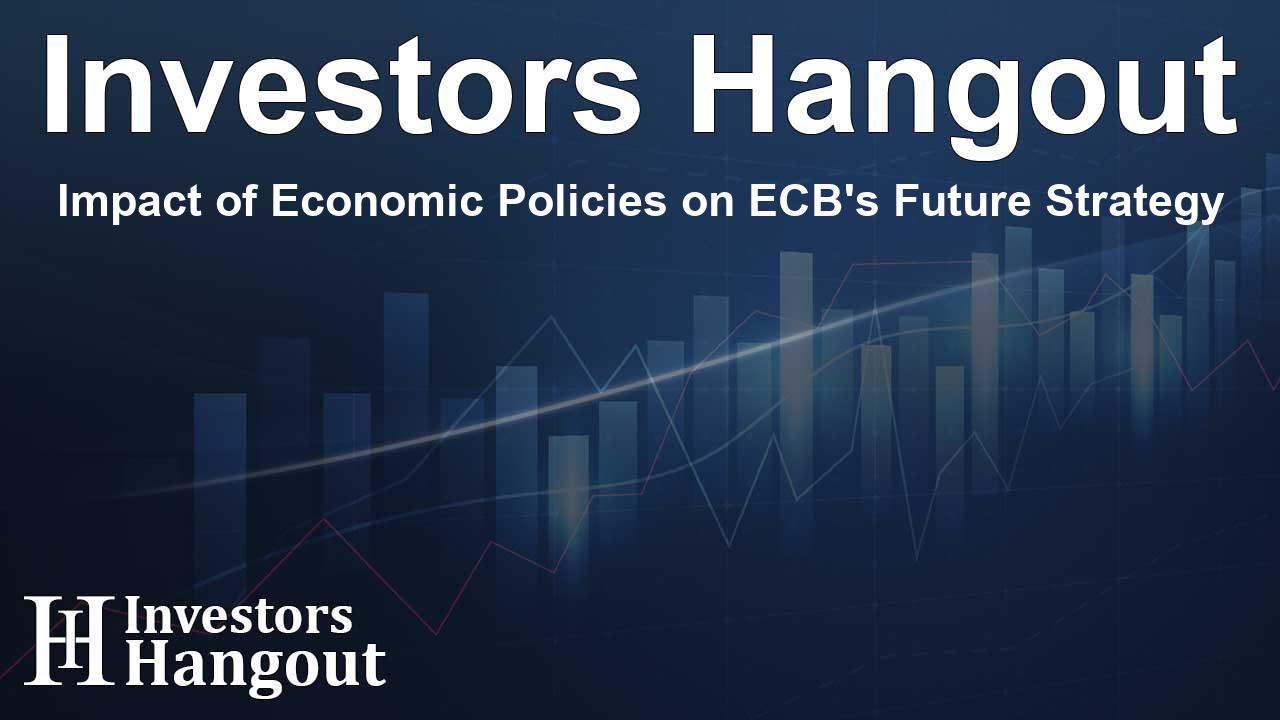Impact of Economic Policies on ECB's Future Strategy

Understanding the ECB's Upcoming Decisions
The European Central Bank (ECB) is set to convene to discuss its monetary policy amid a shifting economic landscape. Recent changes in leadership in the U.S. have raised new questions about the ECB's direction. As traders speculate on potential rate cuts, the focus remains on how these decisions will impact the eurozone's economy.
Key Economic Questions for the ECB
With significant events unfolding, here are critical questions that market participants are asking:
1. What Rate Changes Can Be Expected?
The consensus suggests the ECB will likely reduce the key deposit rate by 25 basis points, bringing it down to 2.75%. This anticipated move aligns with market expectations and reflects the ECB's recent shift away from restrictive guidance.
2. How Do Tariff Risks Influence ECB Policies?
While concerns about tariffs have not dramatically altered the ECB's outlook, the return of tariffs could affect inflation and demand. President Trump’s policies pose potential risks, but the ECB appears poised to monitor these developments closely without making hasty adjustments.
3. Will the ECB Continue to Cut Rates?
Expectations indicate that traders foresee several rate cuts this year, with rates possibly approaching 2%. However, some ECB policymakers advocate for caution in how swiftly reductions should happen, emphasizing the need for thorough consideration as rates reach these levels.
4. Should ECB Worry About Rising Inflation?
Rising inflation has reached its highest rate since July, principally influenced by energy prices. However, economists believe this increase falls within the ECB's expectations and does not necessitate immediate drastic action. Long-term implications for wage growth are also under evaluation.
5. What Changes if the Fed Stops Cutting Rates?
If the Federal Reserve halts its rate cuts due to strong economic conditions, this may indirectly benefit the eurozone economy, giving the ECB room to maneuver. However, if stagnation occurs, the situation could complicate matters, requiring the ECB to remain vigilant in their monetary strategy.
Frequently Asked Questions
What is the primary goal of the ECB?
The ECB's main objective is to maintain price stability and control inflation within the eurozone.
How does inflation affect the eurozone economy?
Inflation impacts purchasing power, consumer spending, and overall economic growth, necessitating careful attention from the ECB.
What role do tariffs play in the ECB's monetary policy?
Tariffs can influence inflation rates and economic demand, which are crucial factors in formulating the ECB's policy decisions.
How frequently does the ECB hold meetings?
The ECB typically meets every six weeks to discuss monetary policy and economic conditions.
What could trigger a rate cut from the ECB?
A significant downturn in economic growth or an uptick in unemployment can prompt the ECB to consider rate cuts to stimulate the economy.
About Investors Hangout
Investors Hangout is a leading online stock forum for financial discussion and learning, offering a wide range of free tools and resources. It draws in traders of all levels, who exchange market knowledge, investigate trading tactics, and keep an eye on industry developments in real time. Featuring financial articles, stock message boards, quotes, charts, company profiles, and live news updates. Through cooperative learning and a wealth of informational resources, it helps users from novices creating their first portfolios to experts honing their techniques. Join Investors Hangout today: https://investorshangout.com/
The content of this article is based on factual, publicly available information and does not represent legal, financial, or investment advice. Investors Hangout does not offer financial advice, and the author is not a licensed financial advisor. Consult a qualified advisor before making any financial or investment decisions based on this article. This article should not be considered advice to purchase, sell, or hold any securities or other investments. If any of the material provided here is inaccurate, please contact us for corrections.